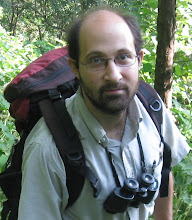Seeing the Bureaucrat Through the Trees
Understanding variation in implementation behavior among Forest Department Officials in forest sector reforms using case studies from Maharashtra & Andhra Pradesh
Understanding variation in implementation behavior among Forest Department Officials in forest sector reforms using case studies from Maharashtra & Andhra Pradesh
Investigator: Forrest Fleischman, PhD Candidate in Public Policy at Indiana University’s School of Public and Environmental Affairs, Bloomington, Indiana, USA. fleischf@indiana.edu, mobile in India: 9xxxxxxxxx
Supervisor: Professor Elinor Ostrom, Workshop in Political Theory and Policy Analysis, Indiana University, USA.
Funding Agency: USA National Science Foundation, Graduate Research Fellowship.
Affiliations in India: The Institute of Economic Growth, University of Delhi; Shodh: the Institute for Research & Development, Nagpur.
Purpose:
Many studies of forest policies in India have noted that there is a high level of heterogeneity in how policies are implemented both between and within states. The vast majority of these studies have focused on how this variation impacts forest users at the village level, but few studies have been undertaken to investigate why policy implementation varies within the Forest Department. This study aims to fill this gap.
This study is designed to serve two purposes. First, it aims to contribute to policy design in the specific context of Indian forest management. Understanding why implementation varies can help policy makers design better policy. It may be that implementation varies as a result of variation in local conditions. If so, such variation may be quite desirable. If, on the other hand, variation occurs because there are differences in the effectiveness of implementation strategies, it would be wise to learn from the most effective strategies.
Second, this study aims to contribute to broad theories of how public agencies function in the management of public programs. Academic literature on policy implementation focuses on the implementation problems facing bureaucracies in the US and Europe, and it is not clear if hypotheses derived from this literature are relevant in the Indian context. This broader theoretical learning could have substantial practical implications if it helps policy makers in India and other developing countries understand why some policies work better than others in some contexts.
Methods:
This study relies on a comparative case study design. The first comparison is made between the states of Andhra Pradesh & Maharashtra – states with distinctive histories in forest policy. The focus is on the regions of Telangana & Vidarbha, which share a border & have relatively similar ecological and social conditions. A second comparison is made between different types of policies implemented on Forest Department lands. Joint Forest Management was designed by the Forest Department in consultation with international donors. Key stated aims include reforestation, improving relations between the Forest Department and forest users, and improving livelihoods for forest users. By contrast, the Forest Rights Act, which aims to improve the rights of forest users, was written by activists outside of the Forest Department, decreases the authority of the Forest Department to make decisions about land use on forests, and is reported to be unpopular with Forest Department officials.
Within each state, I intend to make extended visits of 2-3 weeks to 5 different forest divisions. Within each division, the focus will be on understanding how these 2 policies are implemented, and why they are implemented in this way. In each division I will interview and observe the daily activities of Forest Department managers over a period of up to 2-3 weeks. I also plan to talk to other employees both in field and supervisory roles, forest users involved in Forest Department programs, and other stakeholders and observers, including politicians, local leaders, activists, NGOs, businesspeople, journalists, and academics. I will also conduct interviews at the regional and national level with officials and others who influence policy implementation in the Forest Department. Involvement in all interviews is voluntary on the part of interviewees, and I greatly appreciate the time taken by interviewees to inform me about their work & lives.
Every effort will be made to insure the confidentiality of all participants in this study. I cannot guarantee absolute confidentiality. Personal information may be disclosed if required by law. Individual identities will be held in confidence in reports in which the study may be published, and databases in which results may be stored.

No comments:
Post a Comment